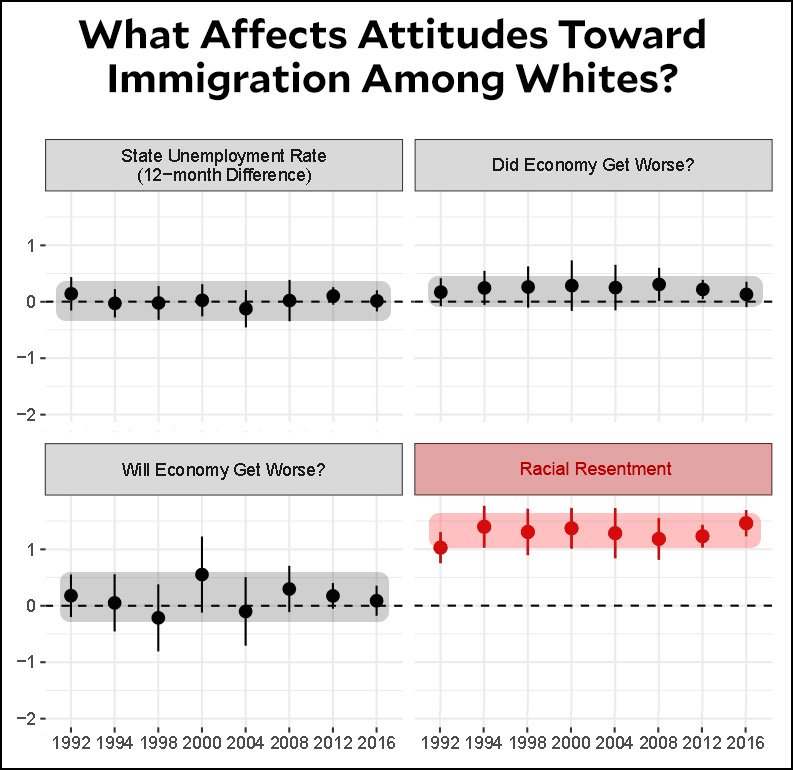What is it that gets so many conservative whites so enraged about immigration? Are they afraid immigrants will take away their jobs? Or do they just not like non-white people very much?
Steven Miller, a political science professor at Clemson, decided to test this using data from election surveys going back to 1992. I don’t want to keep you in suspense, so here’s the basic answer:

Nothing related to economic anxiety has any correlation at all with attitudes toward immigration—and it never has. Going back 25 years, the correlations are barely different from zero in practically every year.¹ But the correlation with racial resentment is both consistent and sky high. If you don’t like brown people, you don’t like immigration.
This is hardly news. Liberals have been mocking “economic anxiety” as an explanation for Donald Trump’s victory ever since Election Day. Still, for something this incendiary, it’s a good idea to test it as many ways as possible and over as much time as possible. This is just one more confirmation that when Trump rails about Mexico and the wall, he’s appealing almost purely to racism, not to working-class anxiety over job loss.
It’s worth noting that this forces us to face another question: was Trump’s anti-immigrant message responsible for his victory? My take is that the evidence shows us two things:
- “Build the wall” appealed exclusively to racist sentiment.
- With a few minor exceptions, racist sentiment was no stronger in 2016 than any other recent year. If you dial it up, you gain some voters at the bottom but lose at least as many from the middle.
In other words, Trump’s immigration message didn’t help him and, on net, probably actually hurt him. Outside of Trump’s base, I think most people understand perfectly well that anti-immigrant sentiment is basically driven by racism, and they want no part of it. Democrats should use this to their advantage by baiting Trump into getting ever louder and more putrid about immigration. The racist core of his base is already as fired up as it’s ever going to get over this, but the rest of the country becomes queasier the more he yells about it. In the Trump era, toleration for immigration isn’t just good policy, it’s almost certainly good politics too.
¹In fairness, this doesn’t preclude the possibility that there’s some economic variable somewhere that’s related to anti-immigration sentiment. Miller was limited to what was in the election surveys, so technically we can draw conclusions only about those particular variables. But in addition to the ones I show above, there’s also no (or barely any) correlation with gender, education, income, and being unemployed. So if there is some economic variable related to being anti-immigrant, it’s pretty well hidden.

















